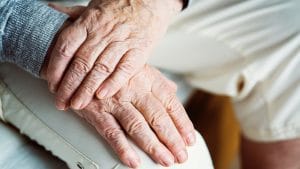Why Do We Dream and What Do Our Dreams Mean?
written by / August 9, 2019

Though some people may not remember their dreams, it’s likely that everyone dreams. But why do we dream? The definition of dreaming is diverse, and the theories about it are more than curious.
The most popular of them connect dreaming with coping with internal feelings and processing the stresses of everyday life. Similar ones suggest that dreams help people work through different emotions, traumas, and psychological disorders, such as anxiety.
Most dreams involve recent or past events that we’ve experienced. And different types of dreams can help us manage and organize the conscious and unconscious stimuli we absorb throughout the day and help us address everyday life problems.
There’s already evidence from studies stating that deep sleep is essential in how the mind and memory functions. Once our daily memories are processed thanks to a good night of sleep, our brain has the opportunity to “refresh” and “restart.”
Further studies revealed that boosting our memory depends not just on our few hours of rest, but on dreaming itself. In this sense, dreams also help organize and consolidate memories, thus facilitating “access” to them when needed.
Why Do People Dream? The Most Dominant Theories
Dreaming to Execute Our Desires
Dreams could be a kind of method by which we fulfill our desires. Every dream, no matter how dreadful, could be seen as a way of getting what we want, literally or symbolically. For example, if we dream about something strange, like someone dying, we may have a conflict with that person and want to resolve it quickly.
Examining the meaning of dreams this way may help people to solve problems and fight the burden of hidden emotions that they didn’t even suspect existed. But what do dreams mean exactly? We still can’t say for sure.
Dreaming as a Random Side Effect Caused by Arbitrary Nerve Impulses
Other researchers believe that dreams and nightmares are a kind of discharge from the brain. Furthermore, they could be a side effect caused by activated neuron chains in the brain and the stimulation of the limbic system associated with emotions, sensations, and memories. In short, the purpose of dreams could be linked to the mind trying to interpret these signals.
An interesting thing about this theory is that it could explain why people use storytelling to make sense of the universe, which is often chaotic and arbitrary. If this argument is correct, it means that composed stories are “awake dreams”—meanings we use to make sense of the fundamentally disorganized signals we get from the world around us. So why do you dream awkward or fantastically vivid dreams? This theory is a reasonable response.
Dreaming as a Transition from Short- to Long-Term Memory
Dreams may simply be randomly generated stories caused by nerve impulses. This theory is based on the fact that our brain continuously stores memories, whether we’re awake or not. Dreams could be seen as temporary storage for memories right before we move them from short- to long-term storage.
Dreaming as a Waste-bin
According to another theory, sleeping and dreams are a way to get rid of any unwanted associations that have accumulated in our brain during the day. In practice, dreams are a kind of trash bin, a mechanism that helps rid us of pointless thoughts and pave the way for better ones. We essentially dream to forget. Dreams help us eliminate excessive information from our daily lives and keep only the most essential things.
Consolidating What We’ve Already Learned
Another of the well-researched dream theories, this is the last one’s opposite. According to it, we dream to remember, not to forget. These assumptions are based on studies showing that people remember what they’ve learned better after dreaming, suggesting that dreams help us preserve what we already learned.
This idea has been supported by recent research on trauma. The observations demonstrated that people who fall asleep after a traumatic experience are more likely to remember the terrible things that happened to them and to remember them for a long time. This possible function of dreams helps explain why it’s practice for trauma survivors to be kept awake for hours unless they’re entirely exhausted.
Dreaming as an Evolutionary Mechanism for Protection
This theory is based on research that finds strong links between animals that appear to be dead and what happens to your body when you dream. Essentially, when you dream, your brain behaves as if you’re awake. However, chemicals like dopamine, which is associated with physical movement, are entirely inaccessible.
This is also the case in animals that fall into temporary paralysis to deceive a predator into thinking it’s dead. Based on these observations, it’s possible dreams are a protective mechanism preserved in the evolutionary process.
Dreams That Simulate Threats
The previous theory perfectly elucidates one of the possible causes of dreams. Another evolutionary theory states that the biological function of dreams helps simulate threatening events. This could be seen as a rehearsal that will help us to deal with real circumstances more easily when we encounter a possible threat.
People cope with crisis situations better if they’ve already experienced them in some way, even if only subconsciously. As a result, those who can dream of these things are more likely to survive—and therefore transmit their genes to the next generation. This theory may reasonably answer the question, why do we have nightmares? But it doesn’t explain those repeated dreams of opening the fridge and eating everything in there, from sweets to pizza.
Solving Problems While Dreaming
Some researchers suggest that dreams are like a theater scene where we have the opportunity to solve our problems more efficiently than we do when we’re awake. This is one concept that stems from the psychology of dreams.
When we dream, our consciousness makes connections much faster than when it’s awake. This idea is based in part on conducted experiments in which people have to solve a problem after “sleeping on it.” Those who dreamed about the problem were better at doing so.
Oneiric Darwinism
Maybe the theory that we solve problems in our sleep is a kind of Darwinian process. So on an evolutionary level, why do people dream, and perhaps even more importantly, why do we sleep? We dream to create new ideas via random generations, at least in part, and then these can be saved if they’re reasonable.
First and foremost, dreams introduce arbitrary variations from physical life as well as internal narratives, producing “mental mutations.” Our consciousness can then start choosing between these variations and create new types of thoughts. These can improve a person’s imagination, self-awareness, and physical functions.
In reality, dreams can be treated as a natural set of ideas. In terms of what causes dreams, this theory can also spread to an emotional level. According to some researchers, we experience different situations in our dreams and try to choose the most appropriate emotional response to address them. Moreover, this is one of the most effective ways to process our problems emotionally. It explains why we often feel relief over painful topics once we wake up.
Addressing Painful Emotions Through Symbolic Associations
Ever wonder, Why do I dream so much? While the Darwinian model of dreams suggests that we aggressively mutate our ideas or throw out inappropriate emotions, another model indicates dreaming could be a type of psychological therapy. In this case, we don’t deliberately select the most adaptable idea or emotion. We just put these ideas and feelings in a more comprehensive psychological context. Often, the brain does this by associating these impressions with symbols.
When a clear emotion is available, our dreams are usually straightforward. Most dreams and their meaning relate to a person’s general emotional state. When a person experiences several emotions at once, their dreams will be more complex. For these reasons, people who’ve suffered a trauma often dream of something terrible, but usually not about the real traumatic event. In addition, statistics show that lucid dreaming is more frequent and intense after experiencing trauma.
So according to this theory, what is the purpose of dreams? Sleep specialists speculate that the associations between emotions and symbols in more common dreams allow us to master emotions and weave them into our personal history. Perhaps the symbolic association in dreaming represents an evolutionary adaptation that once helped our ancestors deal with trauma. After all, millennia ago, the world presented many more life-threatening events than what we experience today.
What Happens to Our Body While Dreaming, and Can We Control Our Dreams?
Have you ever wondered what’s going on in your body when you fall asleep? This question has tortured scientists for a long time. Some people notice that while dreaming, they grind their teeth more. Other people who have circadian rhythm disorders, insomnia, etc., report that they never dream as brightly as they do on melatonin therapy.
A lot of studies have attempted to decode this mysterious bodily process. It turns out that dreams go hand in hand with a whole bunch of other sleep functions—our bodies do a great deal of work while we’re dreaming. All of these functions may help answer, why do humans dream?
Trembling Eyes, Eyelids, and Extremities
In the first stage of sleep, your body is between the waking state and falling asleep. Your eyes move as your body slowly begins to prepare to rest. Muscles start trembling and relaxing. Sometimes it may seem like you’re falling off the bed. These are so-called hypnotic convulsions. In many cases, you don’t realize that your eyes are twitching or that you’re moving your arms or legs, and you don’t necessarily realize what you’re feeling.
A Lost Sense of One’s Surroundings
The second phase of the sleep cycle is characterized by sinking into a deeper sleep, where the brain excludes some of its functions, one of which is spatial orientation. Why do we dream about falling when we first fall asleep? This might be the answer. At this point, there’s an alternation between faster and slower brain waves and impulses. You may feel disoriented if you suddenly wake up during this phase.
The Body Begins to Recover the Energy Lost During the Day
This happens in the final phase before REM sleep. For this purpose, your breathing becomes slower and slower, and your heartbeat slows down or remains unchanged. This is the beginning of deep sleep.
A State of Deep Sleep
The brightest, most realistic, and most memorable dreams happen in REM phase. If you wonder how to stop vivid dreams, you should avoid a deep sleep. Of course, actually doing so on a regular basis would have some serious health-based repercussions.
A State of REM Sleep
It occurs approximately every hour and a half, and it can happen 3–4 times a night. If you happen to wake up from an incredibly realistic dream and wonder if it really happened, then it was during the REM phase. The nature of the REM phase is your answer if you’ve been asking, Why do I lucid dream so much?
Lost Muscle Control
During a night of deep sleep, you may have a sense of paralysis that prevents you from moving your body from one place to another in bed or from simply turning around. This is due to the loss of muscle tone, as dictated by the brain, which stops sending signals that produce motion. This explains the state of sleep paralysis, which affects up to 60% of people worldwide.
When You Sleep, Your Brain Doesn’t
Your brain continues to control your body’s critical functions. This is when the brain processes, systemizes, makes decisions about, and archives all the information it received during the day. So why do we dream about people, especially those that we’ve thought of or spoken to during the day? This is one of the reasons.
The Heart Rhythm Can Accelerate
When we sleep, the heart slows down its pulse. But while dreaming, this isn’t the case. Although your limbs lose their ability to move freely and your breathing slows down, your heart can accelerate while you sleep, as shown in this study. In fact, all these observations may explain the connection between sleep apnea and heart disease.
Since we can’t voluntary control our brain and body during sleep, we can’t expect to be able to control the process of dreaming or what we dream either, much like we have no control over sleepwalking.
Why Do We Have Bad Dreams?

Nightmares and crazy dreams often disrupt sleep, and we usually wonder why they happen. Psychology provides another explanation. According to a new study, what we look at and listen to while we’re awake is later interpreted in our dreams. Furthermore, it was shown that the use of electronic devices in the evening before going to bed impacts dreams.
In line with this, what is a nightmare disorder if there is such a thing? Well, the same study found that participants who watch violent content 90 minutes before bedtime are 13 times more likely to have nightmares. Similarly, those who view more sexual content are more likely to dream of sexual scenes. This was observed for all types of media: TV, internet, video games, movies, and music.
So watching violence may impair your quality of sleep and isn’t recommended near bedtime. In this sense, the type and content of the media we use in our daily lives can affect our subconscious even when we sleep. To ensure a calm and healthy sleep, it’s advisable to restrict the use of any electronic devices at night or avoid them entirely. Along with a greater risk of strange dreams, the blue light they emit can disturb your quality of sleep.
FAQs
Why do we forget dreams?
Many things related to sleep, the brain, and the unconscious remain unknown. It isn’t clear why sometimes we don’t remember our dreams at all while on other occasions we do remember them. Dreams are hard to study in a laboratory. With the development of technology and new technical studies, however, the topic of dreaming will soon be better understood and developed.
Do dreams mean anything at all?
Sleep is a unique state of consciousness that brings together three temporal dimensions—it helps you experience the present, reform the past, and prepare for the future. Even when your dreams mean nothing at all, the act of dreaming provides a psychological space to process complex and contradictory feelings. This mechanism helps you achieve mental balance and stability.
Why do I keep having the same dream?
Many people frequently have the same or an analogous dream—over either a short period of time or a lifetime. Taking into account that dreaming may be a mechanism for processing our feelings and problems, it’s not surprising that recurring dreams may indicate a source of stress in our lives. Sometimes, these stress factors aren’t recognized as such at all. The repetitive dream will stop occurring once the issue is solved.
Why do I dream in black and white?
The colors in our dreams demonstrate the state of our conscious mind and the full potential of our imagination. Pregnant women can have bright and vivid nightmares, often related to the idea of their unborn child. When dreams are colorful, they’re closer to reality as we know it. On the contrary, a dream in black and white surprises most people. It’s not clear why they happen, but the lack of color may signal that your life seems colorless and dull. It may also be associated with depression or other mental diseases.
Why do I not dream anymore?
According to the International Association for the Study of Dreams, all people dream, even if they don’t remember. Dreaming is a natural part of sleep. For example, if you’ve been asleep and you wake up with the sense that only 10 minutes have gone by but it’s already morning, you certainly dreamed during that time.
Is it healthy to dream?
Dreaming can be seen as a cognitive simulation through which the dreamer’s experiences become a reality. Nevertheless, dreams are involved in building our cognitive abilities, and they are vital in manifesting the functions of our unconscious mind.
Conclusion
We seem to use the strange images and ideas that come up during sleep to make sense of our everyday life. But why do we dream? It’s fascinating how we can manage to turn random nerve impulses into something intelligible, and even understand how we should feel about them. Undoubtedly, dreams play a significant role in our thinking processes. The question, however, is whether they’re an evolutionary adaptation or something that happened accidentally.










Warning: Undefined array key "format" in /home/602518.cloudwaysapps.com/cspedpjass/public_html/wp-content/themes/disturbmenot/template-parts/post-item/post-comment.php on line 23
Warning: Undefined variable $commenter in /home/602518.cloudwaysapps.com/cspedpjass/public_html/wp-content/themes/disturbmenot/template-parts/post-item/post-comment.php on line 27
Warning: Trying to access array offset on value of type null in /home/602518.cloudwaysapps.com/cspedpjass/public_html/wp-content/themes/disturbmenot/template-parts/post-item/post-comment.php on line 27
Warning: Undefined variable $commenter in /home/602518.cloudwaysapps.com/cspedpjass/public_html/wp-content/themes/disturbmenot/template-parts/post-item/post-comment.php on line 29
Warning: Trying to access array offset on value of type null in /home/602518.cloudwaysapps.com/cspedpjass/public_html/wp-content/themes/disturbmenot/template-parts/post-item/post-comment.php on line 29